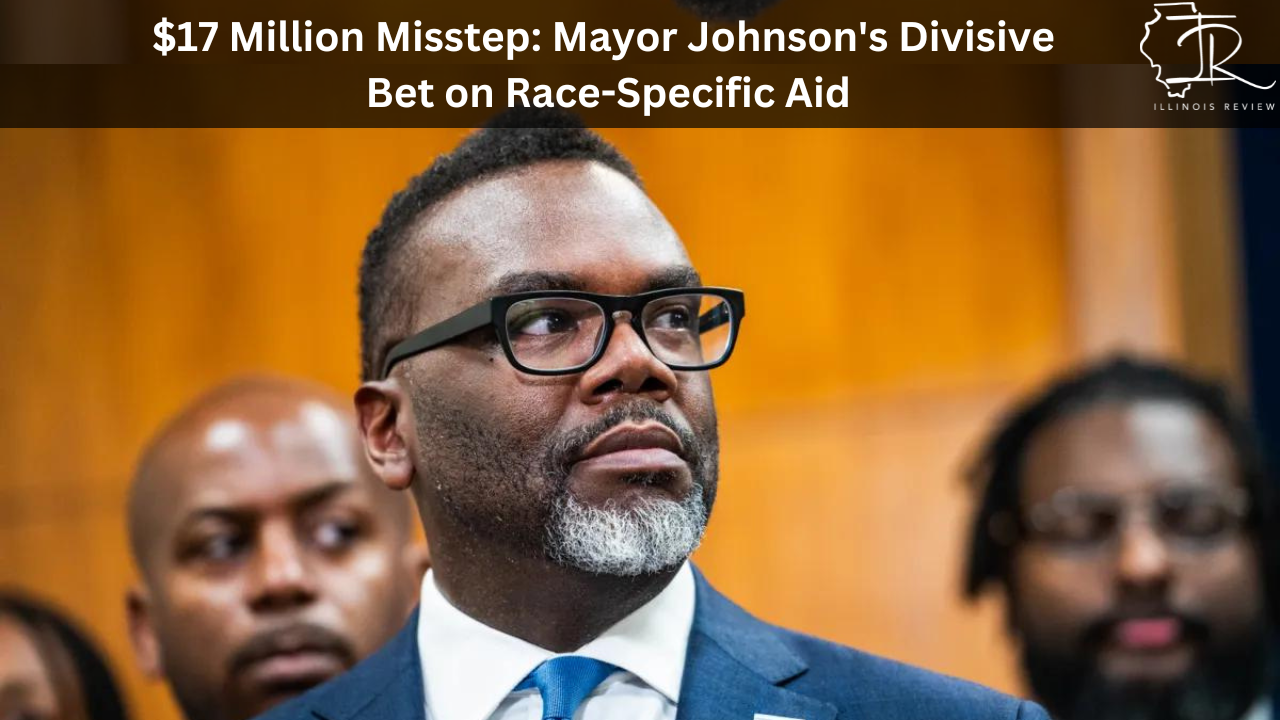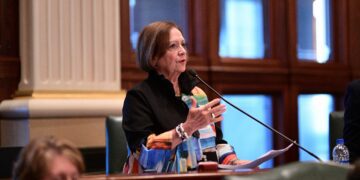Exclusive Funding or Inclusive Failure? The Flawed Approach of Chicago’s Mayor
In the heart of Chicago, a city renowned for its vibrant diversity and rich cultural tapestry, Mayor Brandon Johnson’s recent announcement of an $18 million investment into Black and Latino-owned businesses has ignited a firestorm of controversy. This financial initiative, aimed at providing meals to migrants, has not only raised eyebrows due to its exclusive racial focus but also because it comes at a time when Chicago faces a slew of critical challenges, from skyrocketing crime rates to the aftermath of failed policies that have left many citizens questioning their leadership’s priorities.
At the core of the criticism is the mayor’s decision to allocate $17.6 million in mostly state funds over eight months exclusively to non-White businesses. This approach, which ostensibly aims to support community-based solutions to migrant needs, starkly contrasts with the principle that government support should be blind to race, focusing instead on need, merit, and the capacity to deliver services effectively.
Chicago’s current predicament, marked by a crime wave that has seen homicides and violent crimes surge, demands a unified strategy that leverages all available resources, irrespective of the business owner’s race. The mayor’s racially selective funding not only sidelines a significant portion of the business community but also signals a troubling departure from the inclusive governance that a city as diverse as Chicago requires.
While the mayor’s office has lauded the economic benefits for the chosen businesses, such as BJ’s Market and Bakery, which reportedly saw a 100% increase in revenue, this narrative overlooks the broader economic ecosystem. Chicago’s economy thrives on its diversity, and by excluding a multitude of businesses from this lucrative opportunity, the policy fails to capitalize on the potential for a more comprehensive economic upliftment.
Critics argue that a more inclusive approach would not only spread the economic benefits more widely but also foster a spirit of community and collaboration in tackling the migrant crisis. The current policy, however, risks deepening divisions and perpetuating a sense of unfairness among businesses that were not eligible for funding based solely on their racial background.
Equality before the law is a cornerstone of American democracy, and fairness in government funding initiatives should be paramount. The controversy surrounding Mayor Johnson’s race-based program highlights a critical question: Should government programs provide support based on race, or should they aim to be color-blind, focusing instead on the criteria of need and effectiveness?
By prioritizing businesses owned by specific racial groups, the mayor’s policy inadvertently champions a form of reverse discrimination, undermining the very principles of equality and fairness it purports to support. This approach not only alienates other racial groups but also detracts from the pressing need to address the city’s challenges in a manner that unites rather than divides.
Amidst this debate, Chicago’s rampant crime rate looms large. The city’s residents, already burdened by a sense of insecurity, look to their leadership for solutions that are comprehensive and inclusive. The decision to funnel millions into race-specific programs while the city grapples with such fundamental issues raises concerns about misallocated priorities and the need for a leadership that sees beyond racial lines to the greater good of all Chicagoans.
The effectiveness of leadership is measured not by its ability to cater to specific groups but by its capacity to unite a diverse population towards common goals. In this regard, Mayor Johnson’s policies seem to fall short, focusing too narrowly on race-based initiatives at the expense of broader, more inclusive strategies that address the city’s urgent needs.
As Chicago stands at a crossroads, the need for a reevaluation of leadership priorities has never been more apparent. A truly effective leadership would recognize that the strength of a city lies in its unity, not in its divisions. It would seek to harness the collective capabilities of its entire business community, rather than a select few, to address the challenges it faces.
Mayor Johnson’s race-based funding initiative, while well-intentioned in its aim to support migrants through local businesses, fails to encompass the broader vision required for a city as complex and diverse as Chicago. The path to a stronger, more unified city lies in policies that transcend racial lines, focusing instead on inclusivity, equality, and the common good. As Chicago navigates these turbulent times, the call for a leadership that prioritizes these values has never been louder.








